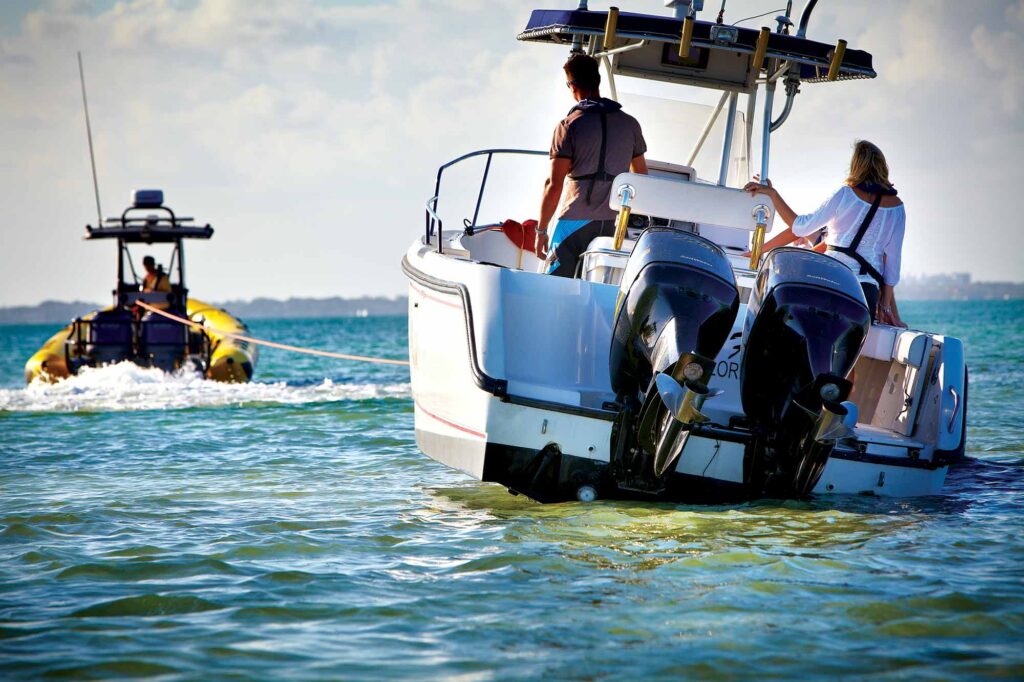
The Future of Boat Towing: Innovations and Game-Changing Techniques
As we stand at the crossroads of technological advancement, every industry is undergoing a transformation, and the world of boat towing is no exception. From traditional methods to cutting-edge innovations, the future of boat towing promises to be both exciting and revolutionary.When unforeseen challenges arise on the waves near Galveston, trust the reliability and expertise of Galveston Boat Recovery Services to provide swift and efficient towing solutions for your peace of mind. In this blog, we will explore the emerging trends, groundbreaking technologies, and game-changing techniques that are shaping the future of boat towing.
I. The Evolution of Boat Towing:
To understand the future, we must first look back at the evolution of boat towing. Traditional methods involved manual labor, ropes, and basic mechanical systems. Over time, combustion engines and hydraulics revolutionized the industry, allowing for more efficient and powerful towing capabilities. Today, however, we are on the cusp of a new era, driven by advancements in automation, artificial intelligence, and sustainable technologies.
II. Autonomous Boat Towing:
One of the most significant innovations on the horizon is the development of autonomous boat towing systems. With the integration of AI and sophisticated sensors, boats equipped with autonomous towing capabilities can navigate waterways, locate distressed vessels, and execute towing operations without human intervention. This not only enhances efficiency but also minimizes the risks associated with human error.
III. Electric and Hybrid Towing Vessels:
The push towards sustainability has permeated the maritime industry, leading to the rise of electric and hybrid towing vessels. Electric propulsion systems, powered by renewable energy sources, are gaining popularity for their eco-friendly and cost-effective nature. Hybrid models combine traditional combustion engines with electric propulsion, providing a balance between power and environmental consciousness. These advancements signal a shift towards a greener and more sustainable future for boat towing.
IV. Smart Towing Technologies:
The future of boat towing is undeniably smart. Advanced technologies such as IoT (Internet of Things) and machine learning are being integrated into towing systems to enhance performance and safety. Smart sensors can monitor towing conditions in real-time, providing valuable data for decision-making. Machine learning algorithms analyze this data to predict potential issues, enabling proactive maintenance and reducing the risk of breakdowns during towing operations.
V. Augmented Reality (AR) for Towing Assistance:
Augmented Reality is making waves in the boat towing industry by providing real-time assistance to operators. AR systems can overlay crucial information, such as navigation instructions, weather conditions, and potential obstacles, directly onto the operator’s field of view. This not only improves situational awareness but also enhances the overall safety and efficiency of boat towing operations.
VI. Green Towing Practices:
In addition to sustainable propulsion systems, the future of boat towing also involves the implementation of eco-friendly practices. This includes the use of biodegradable towing lines, environmentally conscious towing techniques, and adherence to strict emission standards. The industry is increasingly recognizing the importance of minimizing its ecological footprint, and innovations in green towing practices are expected to become standard in the years to come.
VII. 3D Printing in Towing Equipment Manufacturing:
The use of 3D printing technology is revolutionizing the manufacturing process of towing equipment. This innovative approach allows for the creation of lightweight and durable components with intricate designs that were previously unattainable. 3D printing not only improves the efficiency of manufacturing but also enables the production of customized towing equipment tailored to specific needs and requirements.
VIII. Training and Simulation for Towing Operators:
As technology advances, so does the need for skilled operators capable of navigating the complexities of modern towing systems. Training and simulation programs are emerging as essential tools to prepare operators for the challenges they may encounter. Virtual reality simulations provide a realistic environment for operators to hone their skills, practice emergency scenarios, and familiarize themselves with the latest towing technologies.
Conclusion:
The future of boat towing is unfolding before our eyes, driven by a convergence of technological breakthroughs and a growing commitment to sustainability. From autonomous towing vessels to smart technologies and green practices, the industry is on the brink of a transformation that promises increased efficiency, safety, and environmental responsibility. As we navigate these uncharted waters, the innovations and game-changing techniques discussed in this blog will undoubtedly play a pivotal role in shaping the future of boat towing for generations to come.
